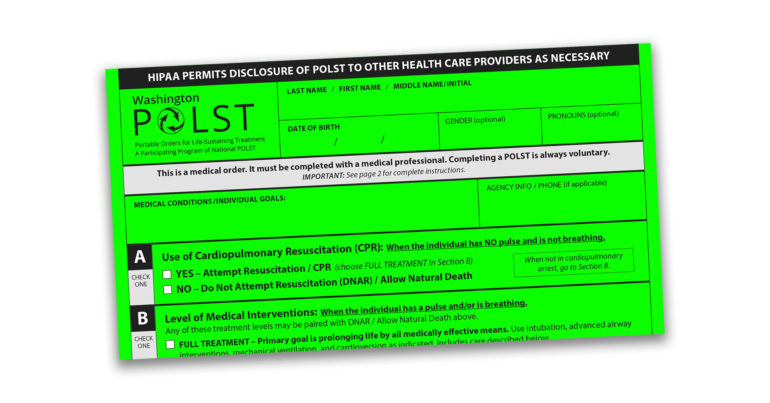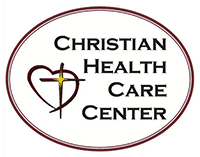Physician Orders for Life Sustaining Treatment, more commonly known as POLST, is a set of portable orders that tell physicians, emergency responders and other care providers how people would like to be treated in a medical emergency.
An important component of self-determination in long-term care, POLST provides guidance that help caregivers better make decisions should something happen with your health. POLST is intended for people who are seriously ill or medically frail, to act as guidance in the event of a health emergency.
According to the Washington State Medical Association, POLST is a voluntary program designed for seriously ill individuals or those in poor health, regardless of age.

What is contained in a POLST?
A POLST allows you to choose among full treatment, selective treatment of comfort-focused treatment during a medical emergency. You also may choose between whether or not you’d like to be resuscitated during a medical emergency. Additional medical orders also can be made — about specific blood products or dialysis, for example. Additionally, there’s space for a description of medical conditions and individual goals regarding treatment.
Is a POLST like an advance directive?
No, POLSTs do not replace advance directives. Advance directives, recommended for all adults, are official documents that designate legal care agents. POLSTs can supplement advance directives by providing additional specific information about care choices.
When should I make a POLST?
Because POLSTs are orders sharing your treatment wishes, they should be made or updated whenever your desires change. If you’re just changing doctors or moving to a new care facility, there’s no need to update your POLST. Your POLST, whether printed or in digital format, will travel with you to different health care settings.
How it’s supposed to work, according to the AARP, is that the POLST form signed by your doctor is copied to your electronic health record and given to close family members and to the person you’ve named to make health care decisions on your behalf.
Why don’t healthy people need a POLST?
Medical standards dictate that all medical options are available to healthy people during a medical emergency. Life-sustaining treatment is assumed. Thus, healthy people who would like life-saving care in an emergency don’t need a document stating that fact.
However, some people with chronic illnesses or seriously poor health might choose other options in an emergency. For example, some might choose not to pursue certain treatments, such as cardiopulmonary resuscitation.
How do I create a POLST?
First, talk with your health care provider, who can help you understand the risks you might face in a medical emergency. Your health care provider can help you understand the POLST process and assist you in filling out a form. You also may get a POLST form by visiting the website of the WSMA’s POLST Program.
Anyone living at Christian Health Care Center also can talk with a nurse about filling out a POLST if desired.
